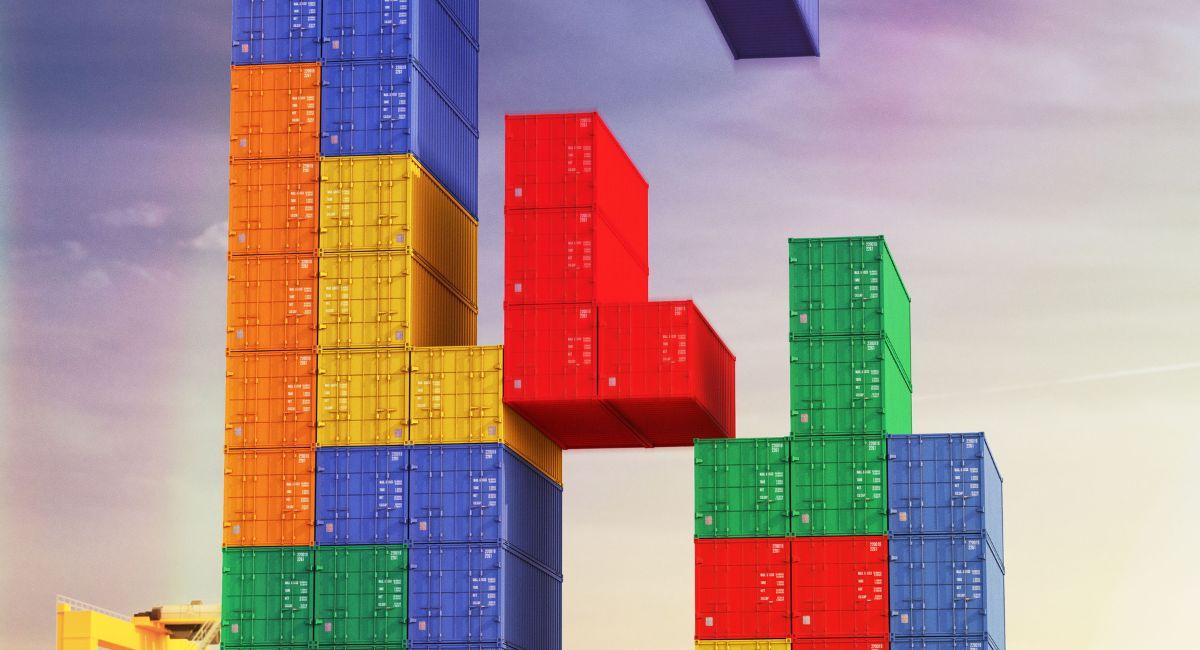Top 10 Ways NFT Gaming Platforms Unlock Diverse And Amazing Benefits For Users

Non-fungible tokens (NFTs) have revolutionized the gaming industry, providing a decentralized framework for ownership, trade, and engagement within virtual ecosystems. NFT gaming platforms, at the intersection of blockchain and gaming, bring forth a myriad of advantages for players, developers, and the gaming community at large. Let’s delve into the top 10 ways these platforms explore diverse benefits.
Top 10 Ways NFT Gaming Platforms Unlock Diverse Benefits
1. True Ownership of In-Game Assets:
NFT gaming platforms empower players with true ownership of in-game assets. Through blockchain technology, each asset is tokenized as a unique NFT, allowing players to buy, sell, and trade digital items with unprecedented ownership rights.
2. Player-Driven Economies:
The integration of NFTs fosters player-driven economies within gaming platforms. The scarcity and uniqueness of NFTs contribute to the valuation of in-game assets, creating a dynamic marketplace where players actively participate in determining the value of virtual items.
3. Interoperability Across Games:
NFT gaming platforms facilitate cross-game interoperability. Players can seamlessly transfer their NFT-based assets from one game to another, breaking down silos and creating a connected gaming experience across different virtual worlds.
4. Provably Rare and Authentic Collectibles:
Developers can create provably rare collectibles through NFTs. The blockchain ensures transparency and authenticity, allowing players to verify the rarity of in-game items. This provability enhances the value and prestige associated with limited edition digital collectibles.
5. Play-to-Earn Models:
NFT gaming platforms contribute to the “play-to-earn” model, where players can earn tangible rewards through in-game achievements. Tokenized assets and rewards provide players with opportunities to monetize their gaming skills and investments.
6. Community Building and Engagement:
The community-building aspect of NFT gaming platforms is paramount. Exclusive NFT drops, events, and rewards strengthen player engagement, fostering a sense of community ownership and loyalty.
7. Decentralized Governance:
Some NFT gaming platforms incorporate decentralized governance models where NFT holders have voting rights in platform decisions. This democratic approach ensures that the community has a say in the development and evolution of the gaming ecosystem.
8. Dynamic Storytelling and Quests:
NFTs enable dynamic storytelling within games. Developers can tie quests, narratives, or special events to specific NFTs, providing players with unique and personalized gaming experiences based on their ownership of digital assets.
9. Novel Fundraising and Crowdfunding:
NFTs offer innovative fundraising and crowdfunding opportunities. Game developers can tokenize exclusive in-game items or experiences and offer them as rewards during crowdfunding campaigns, involving the community in the development process.
10. Brand Collaborations and Partnerships:
NFT gaming platforms pave the way for brand collaborations and partnerships. Companies can collaborate to release limited edition NFTs, exclusive in-game events, or co-branded digital assets, creating unique experiences for players and expanding the reach of both brands.
Also, read- Top 10 Ways Web3 Gaming Is Singnificantly Transforming The Gaming Landscape Through P2E
Challenges and Considerations:

The NFT (Non-Fungible Token) industry has witnessed explosive growth, primarily associated with digital art in the form of JPEGs and other multimedia content. However, for the NFT industry to evolve beyond being predominantly associated with digital images, several challenges and considerations need to be addressed:
- Content Diversity:
- Challenge: The current focus on visual art and collectibles limits the diversity of content associated with NFTs.
- Consideration: Expanding into various digital assets, such as music, videos, virtual real estate, virtual goods, and other forms of digital and even physical assets, will contribute to a more diverse and robust NFT ecosystem.
- Interoperability:
- Challenge: Lack of interoperability between different NFT platforms can hinder the exchange and use of NFTs across ecosystems.
- Consideration: Developing standards and protocols for cross-platform compatibility will encourage a more interconnected NFT space, allowing users to interact seamlessly with different platforms.
- Sustainability Concerns:
- Challenge: The environmental impact of blockchain networks, particularly those using proof-of-work consensus mechanisms, has raised sustainability concerns.
- Consideration: Exploring and adopting more environmentally friendly consensus mechanisms, like proof-of-stake or layer 2 solutions, can address sustainability concerns associated with NFT transactions.
- Educational Barriers:
- Challenge: Lack of awareness and understanding about NFTs beyond digital art can be a barrier to broader adoption.
- Consideration: Educational initiatives and campaigns can help users and creators explore the full potential of NFTs, fostering a better understanding of their applications across various industries.
- Legal and Copyright Challenges:
- Challenge: NFTs often raise legal and copyright issues, especially in terms of ownership and usage rights.
- Consideration: Developing standardized smart contracts and legal frameworks that explicitly define ownership rights and usage permissions can help mitigate legal challenges and provide clarity for creators and buyers.
- Marketplace Curation and Quality Control:
- Challenge: Ensuring quality control and preventing the flooding of marketplaces with low-quality or plagiarized content is essential.
- Consideration: Implementing robust curation mechanisms, user reviews, and verification processes can contribute to maintaining the quality and integrity of NFT marketplaces.
- Integration with Real-World Assets:
- Challenge: Integrating NFTs with real-world assets, such as real estate or physical goods, requires overcoming regulatory and technical challenges.
- Consideration: Collaborating with legal and regulatory bodies to establish frameworks for tokenizing real-world assets and ensuring compliance with existing regulations is crucial.
- User Experience and Accessibility:
- Challenge: Complex and confusing user interfaces may deter mainstream adoption.
- Consideration: Improving user experience, creating user-friendly interfaces, and providing educational resources can enhance accessibility and make NFTs more appealing to a broader audience.
- Scalability:
- Challenge: Blockchain scalability issues, particularly in popular networks like Ethereum, can lead to high transaction fees and slower processing times.
- Consideration: Exploring and adopting layer 2 scaling solutions or migrating to blockchain networks with improved scalability can enhance the overall efficiency of NFT transactions.
- Token Standards and Smart Contract Flexibility:
- Challenge: The lack of standardized token formats and limited flexibility in smart contracts may limit the functionalities of NFTs.
- Consideration: Continued development of token standards, such as ERC-721 and ERC-1155, along with more versatile and customizable smart contract frameworks, can enable a broader range of use cases for NFTs.
Addressing these challenges and considerations will be crucial for the NFT industry to evolve beyond its current limitations and explore its full potential across various sectors and forms of digital and tangible assets.
🎉Thrilled to partner with @OpenTaskAI, a leader in AI and freelancer platforms🎉
Our collaboration will bring #OpenTaskAI‘s AI solutions to #Gameta‘s NFT gaming ecosystem, aiding Web2 to Web3 transition.
Together, we aim to transform casual gaming and reach our user growth… pic.twitter.com/DSZ7APXa6s
— Gameta (@Gameta_Official) January 15, 2024
The Future Landscape:

The use of NFTs (Non-Fungible Tokens) is poised to expand significantly across diverse industries, leveraging blockchain technology for unique digital and tangible assets. Here’s a glimpse into the potential future landscape of NFTs in various sectors:
- Art and Collectibles:
- Current State: NFTs gained popularity in the art world, allowing digital artists to tokenize their work and establish ownership.
- Future Landscape: Continued growth in the art sector with innovative applications, such as dynamic and interactive NFT art, and collaborations between traditional and digital artists.
- Music and Entertainment:
- Current State: Musicians and entertainers use NFTs to tokenize music, concert tickets, and exclusive content.
- Future Landscape: Expansion into virtual concert experiences, tokenization of royalty rights, and enhanced fan engagement through NFT-based perks.
- Gaming and Virtual Assets:
- Current State: NFTs are used to represent in-game items, characters, and virtual real estate.
- Future Landscape: Increased integration with blockchain gaming, cross-platform interoperability of NFTs, and the emergence of play-to-earn models where players can trade NFTs for real-world value.
- Real Estate:
- Current State: Tokenization of real estate assets, allowing fractional ownership through NFTs.
- Future Landscape: Widespread adoption of NFTs for property transactions, increased liquidity in the real estate market, and the creation of decentralized property investment platforms.
- Fashion and Luxury Goods:
- Current State: NFTs used for limited edition digital fashion items and virtual wearables.
- Future Landscape: Integration of NFTs in the fashion industry for provenance tracking, anti-counterfeiting measures, and exclusive digital fashion collections.
- Sports and Memorabilia:
- Current State: Tokenization of sports memorabilia, collectibles, and athlete interactions.
- Future Landscape: NFTs playing a central role in fan engagement, virtual sports experiences, and the tokenization of athletes’ career highlights.
- Education and Credentials:
- Current State: NFTs used to verify and tokenize academic credentials and certifications.
- Future Landscape: Widespread adoption for issuing and verifying educational qualifications, creating a decentralized and secure credentialing system.
- Healthcare and Pharmaceutical:
- Current State: NFTs utilized for tracking and authenticating pharmaceuticals and medical records.
- Future Landscape: Expansion into patient data ownership, personalized medicine NFTs, and secure tracking of the pharmaceutical supply chain.
- Supply Chain and Logistics:
- Current State: NFTs used for traceability and transparency in supply chain management.
- Future Landscape: Increased integration with IoT devices for real-time tracking, reduction of fraud in the supply chain, and improved transparency for consumers.
- Charities and Nonprofits:
- Current State: NFTs used for fundraising and tokenizing charitable donations.
- Future Landscape: Continued use in fundraising, creating transparency in fund allocation, and enhancing donor engagement through unique NFT-based incentives.
- Virtual Reality (VR) and Metaverse:
- Current State: NFTs used for virtual land and assets in decentralized virtual worlds.
- Future Landscape: Emergence of interconnected metaverse experiences, tokenization of virtual identities, and the integration of NFTs in virtual reality content creation.
- Legal and Intellectual Property:
- Current State: NFTs employed for copyright and intellectual property protection.
- Future Landscape: Increased adoption for tracking and protecting digital rights, tokenizing legal contracts, and enabling decentralized legal processes.
As the technology matures and regulatory frameworks evolve, NFTs are expected to revolutionize the way assets are represented, owned, and traded across a wide spectrum of industries, contributing to a more decentralized and inclusive global economy.
Conclusion:
NFT gaming platforms stand as pioneers in reshaping the gaming landscape. From empowering players with true ownership to fostering dynamic economies and interconnected virtual worlds, the benefits of these platforms extend far beyond traditional gaming experiences. As the industry continues to evolve, NFT gaming platforms are poised to lead the way into a future where virtual assets are truly owned, valued, and celebrated within a global gaming community.




























































